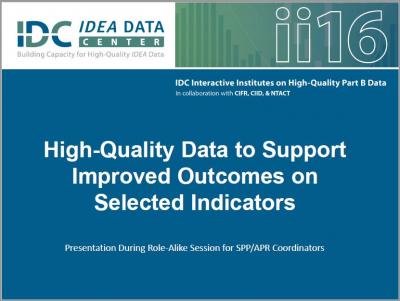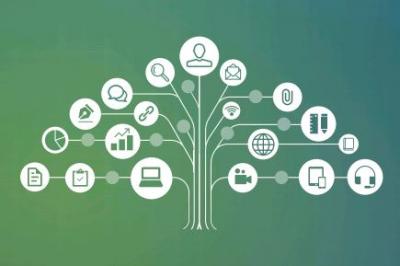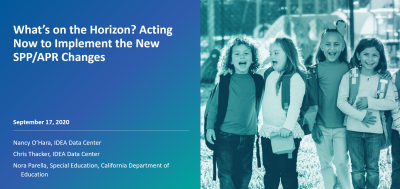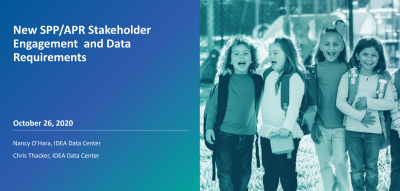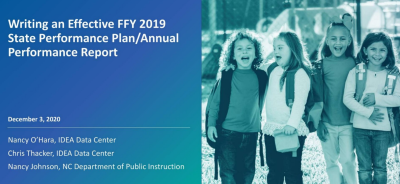Site Search
Results 1 - 6 of 6
-
What’s on the Horizon? Acting Now to Implement the New SPP/APR Changes
Join our knowledgeable IDC staff, Nancy O’Hara and Chris Thacker, as they guide you through the changes to the State Performance Plan/Annual Performance Report (SPP/APR) collection that will establish a new 6-year cycle for collecting and reporting IDEA data. The presenters explained the new requirements and shared implications for data collection, analysis, and use. A state speaker shared strategies their state is implementing now to meet the new requirements and ensure the state will have high-quality data for reporting for the FFY 2020 SPP/APR. This interactive webinar provided an opportunity for states to contribute their ideas and planned strategies to prepare for their SPP/APR due in 2022.
-
New SPP/APR Stakeholder Engagement and Data Requirements
IDC’s October webinar focused on two primary areas of change in the new SPP/APR package: Stakeholder Engagement and SPP/APR Data Requirements. Presenters helped states understand the new stakeholder engagement and data requirements and identify potential actions they can take to prepare for timely implementation of these changes. Presenters payed specific attention to data source changes for indicators 1, 5, 6, 13, and 14. In addition, participants heard state perspectives on how state staff are conceptualizing or implementing new approaches to meet the new requirements.
-
Writing an Effective FFY 2019 State Performance Plan/Annual Performance Report
Experienced IDC staff guided states through the process of State Performance Plan/Annual Performance Report writing. Presenters detailed guidance OSEP provided for the reporting process and will draw upon their years of experience to provide helpful tips that have proven effective for other states. Participants learned about common issues or pitfalls in report writing and how to find solutions prior to submitting their reports. Presenters shared effective and complete writing samples along with less effective samples. Staff from North Carolina shared the state’s writing experiences and lessons learned.
Format: Presentations
High-Quality Data to Support Improved Outcomes on Selected IndicatorsThis interactive role-alike presentation for SPP/APR Coordinators engaged states in discussion and dialogue around their experiences with select APR Indicators that address student outcomes. The session included one state's experiences with capturing and using high-quality data and how the data are used to inform the APR and drive decisions for selecting and implementing strategies to improve student outcomes. Participants were encouraged to share their state's examples to improve the APR and student outcomes.
Format: Toolkits
SEA Data Processes ToolkitUsing the SEA Data Processes Toolkit to document data processes for all 616 and 618 data collections will establish a well-managed process for data collection, validation, and submission. In collaboration with IDC State Liaisons, states can use the toolkit to create and maintain a culture of high-quality data and establish and support consistent practices that produce valid and reliable data, while building the capacity of state staff.
Format: Toolkits and Templates
Part C IDEA Data Processes ToolkitUsing the Part C IDEA Data Processes Toolkit to document data processes for all 616 and 618 data collections will establish a well-managed process for data collection, validation, and submission. In collaboration with IDC State Liaisons, states can use the toolkit to create and maintain a culture of high-quality data and establish and support consistent practices that produce valid and reliable data, while building the capacity of state staff. The toolkit contains an overview of the toolkit, Data Collection Protocols, SPP/APR Indicator Protocols, a State Landscape Protocol, a Local EI Program Determinations Protocol, a Data Collections Calendar, and additional resources that provide a structure for documenting data processes. The Data Collection Protocols are in Word, and states can tailor them meet their states' specific documentation needs.


